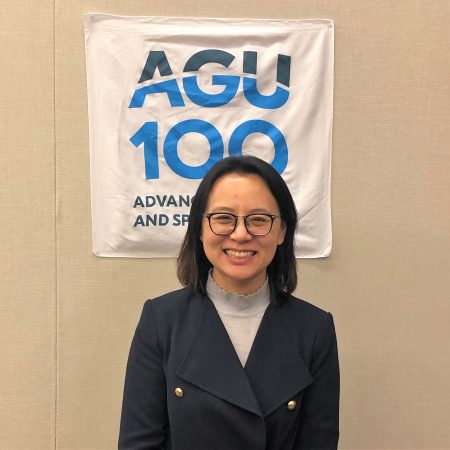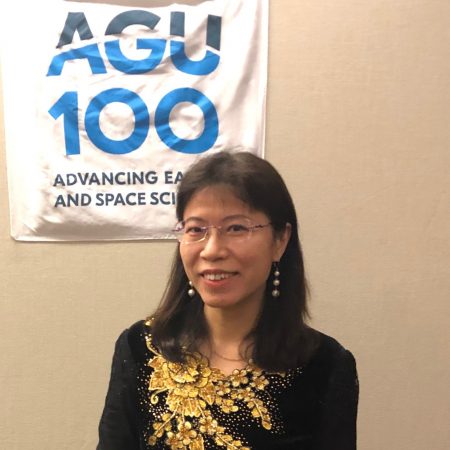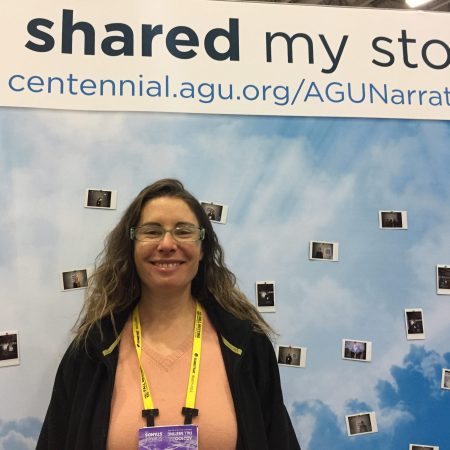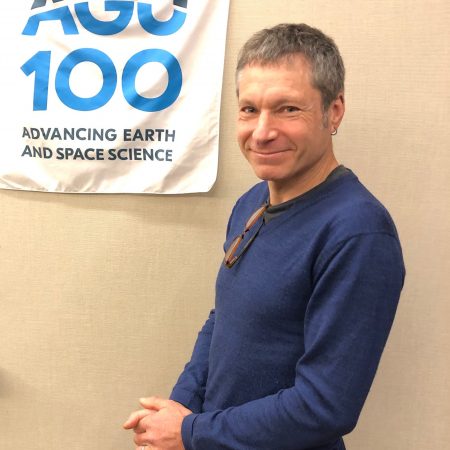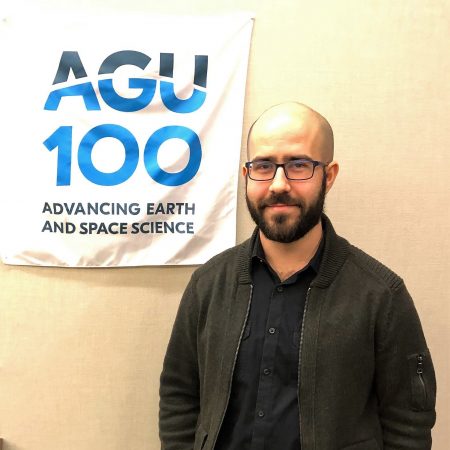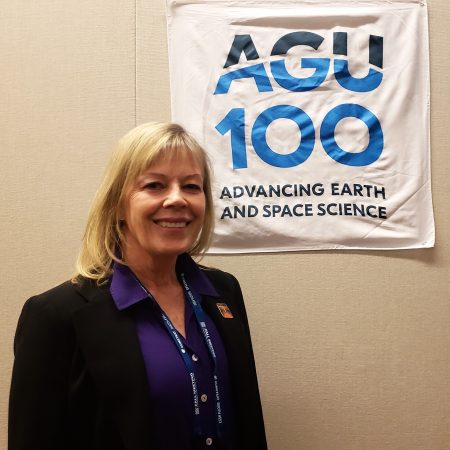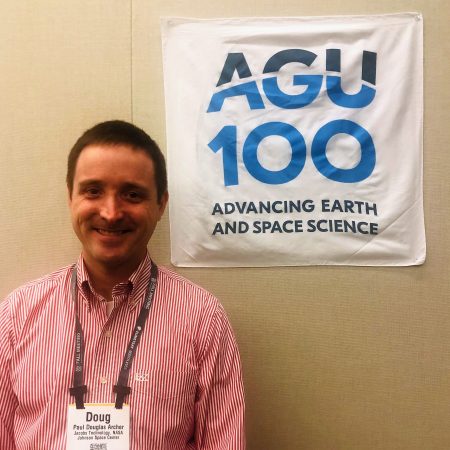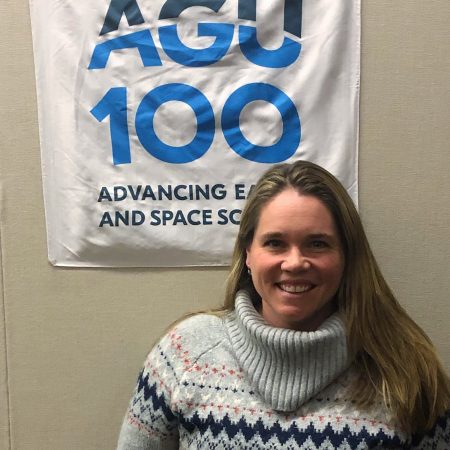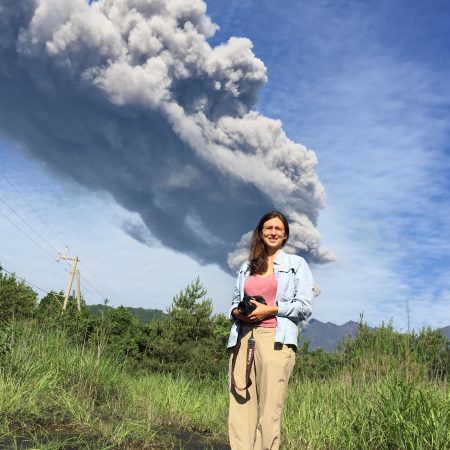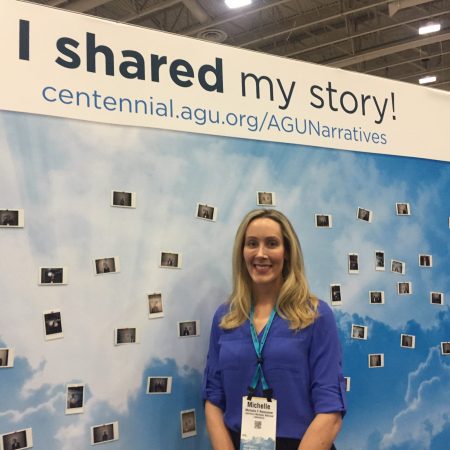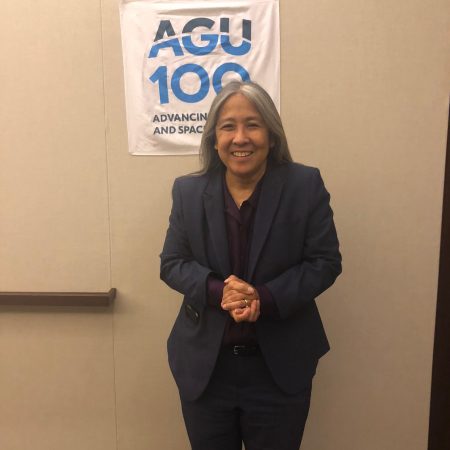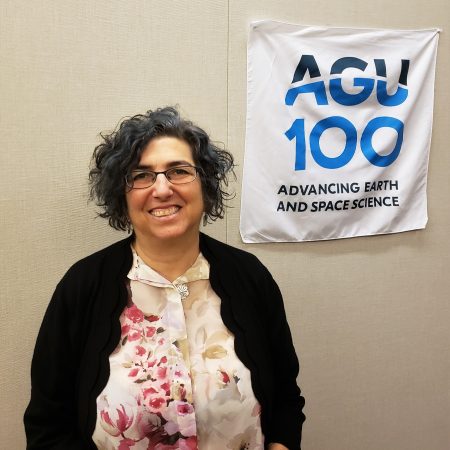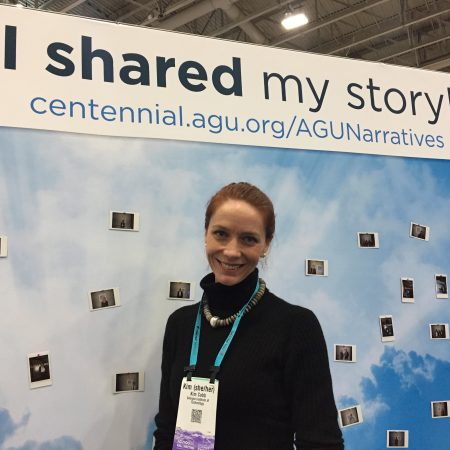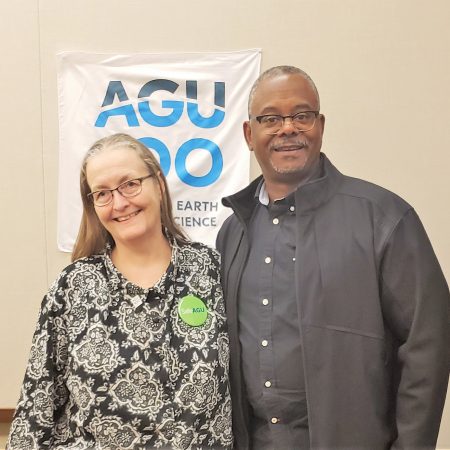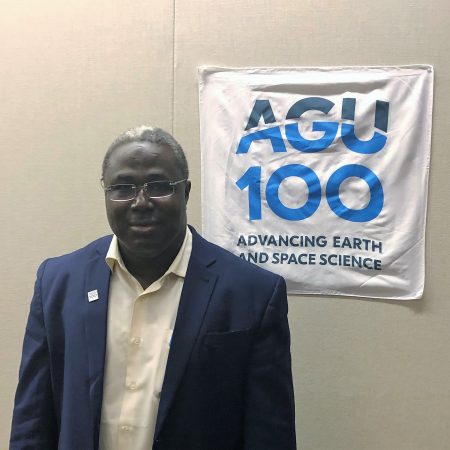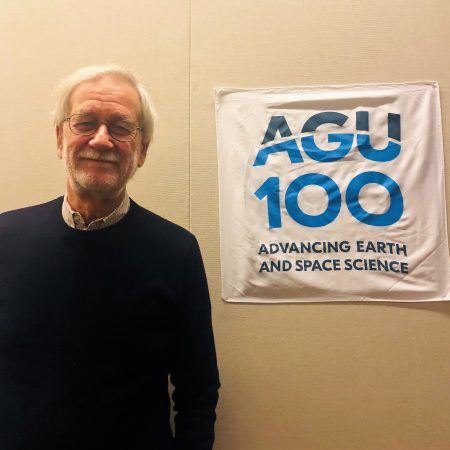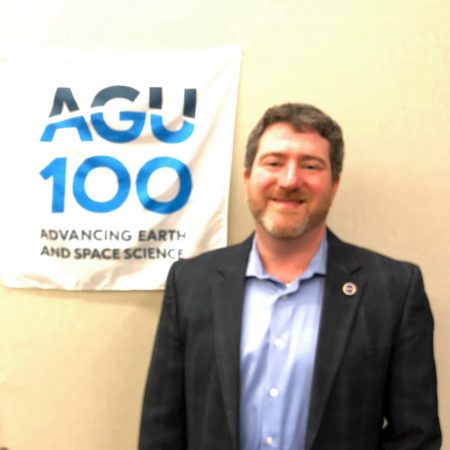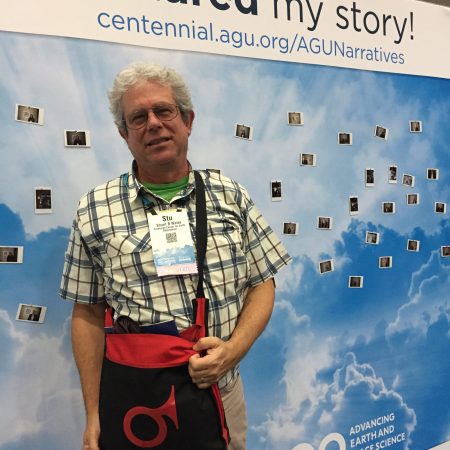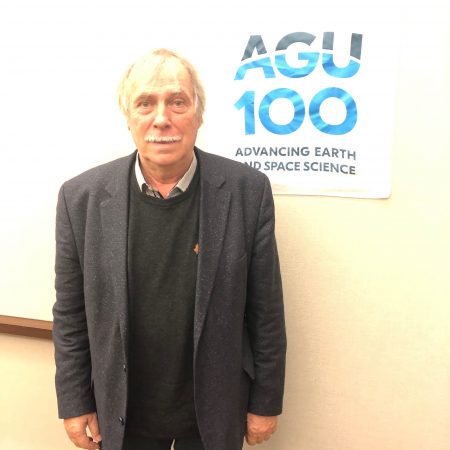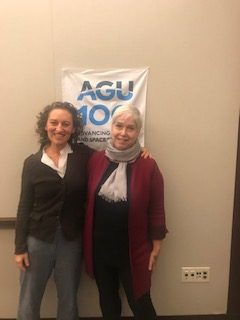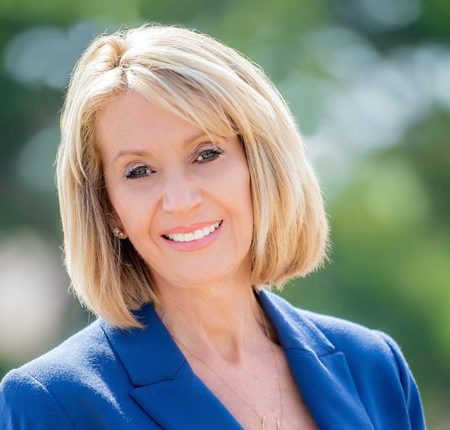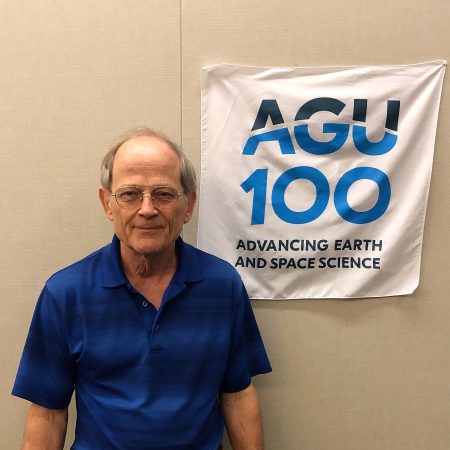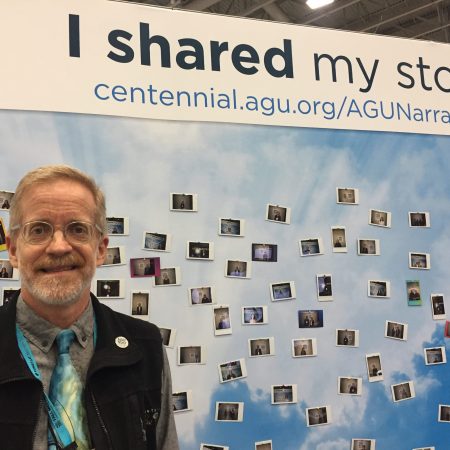Refine
Date Range Clear
Recorded by Clear
Keywords Clear
- earthscience 166
- deep earth 166
- #AGU100 166
- #AGU 165
- NASA 59
- discovery 54
- #womeninscience 30
- 374 more
Partnerships Clear
- No matching terms.
Organizations Clear
- American Geophysical Union 34
- National Aeronautics and Space Administration 9
- The American Geophysical Union 4
- American Geopysical Union 2
- NASA 2
- 11 more
Places Clear
Languages Clear
- No matching terms.
Initiatives Clear
- No matching terms.
From her teaching position at National Taiwan University, Haojia Abby Run is studying nitrogen-related pollution by fossil fuels and fertilizers and warning people in Taiwan of its damage to the ocean. A female Asian oceanographer, who grew up in China’s...
Mei Zheng studies and teaches atmospheric science at Peking University. She’s passionate about training the next generation of scientists, and ensuring that everyone has access to clean air. “A teacher’s job is to encourage, inspire, and challenge students to do...
Adeena Teres is a high school science teacher in Florida, although she tried a few different careers before following her passion for teaching. As a teacher, there are always opportunities to inspire students either into science careers or towards other...
Jonathan Bamber has always loved to climb mountains. It’s why, when he wrote an essay about ice crystal formation in clouds as an 18-year-old undergrad, he found his calling studying glaciers and the natural environment. He’s traveled the world as...
Dr. David Lagomasino, assistant research professor at the University of Maryland and researcher at the NASA Goddard Spaceflight Center, discusses his life in science, studying coastlines and the effects of sea level rise, erosion, deforestation, and other factors on complex...
Laurie Cantillo, the Deputy Director of Communications and Education at the Jet Propulsion Laboratory, talks about her journey to become a science communicator. She developed an interest in science at an early age spending time in the outdoors with her...
Doug Archer has a rock collection, only he’s never actually held any of the stones, and they are hundreds of millions of miles away on Mars. As a research scientist working with the Curiosity Mars rover in NASA’s Johnson Space...
Kristin Lawrence is reimagining how children of all ages can learn and discover science. She is the CEO and Founder of The Hopper, a science discovery playground coming soon to Boulder, Colorado. Kristin changed direction from a career in paleomagnetism...
The only interviewee to describe her chosen field as a “hoot,” Sonja Behnke, Los Alamos National Laboratory, has been actively involved in atmospheric electricity research since 2008. Before that, she was a math instructor as an AmeriCorps volunteer. As a...
Michelle Newcomer is now a research scientist at Lawrence Berkeley National Lab but her first degree was in French and Sociology. She talks here about the fear that comes with changing careers, taking risks, and pursuing the path that you...
Laura Kong is the director of the International Tsunami Information Center and, given that her organization is based in Hawaii, she directly understands the importance of a tsunami warning system. Tsunamis might be infrequent but can be deadly when they...
Jill Marshall, Assistant Professor of Geology at the University of Arkansas thought she was ready to go to college, but there she was on the campus of Boston University as a freshman overwhelmed by her surroundings and on shaky financial...
Kim Cobb loves being out in the field. She talks about the euphoria and passion she has for it, saying “It's like nothing I've ever experienced literally, and I've given birth to four children.” In this interview, she talks about...
With great data comes great responsibility. Ruth Duerr, a self-described scientific “generalist,” and Steve Diggs, an ocean data specialist, take on years of efforts by scientists to inform the public while stopping short of being policy advisors. As data improves,...
Frédéric Ouattara, Universite de Koudougou, knows the practical implications of his research into the ionosphere. Our mobile phone signals become worse due to the weakening of the ionosphere. In Burkina Faso, he helps train the next-generations of geoscientists. The 2018...
Not every scientist can boast about putting an end to Biblical-level plagues. But NASA Senior Earth Scientist Compton Tucker helped to end periodic locust swarms which pop up in dry parts of the world and go onto wreak havoc on...
John Haynes, Program Manager of Health and Air Quality applications in the Applied Sciences Program at NASA headquarters, talks about catching the “weather bug” at a young age. In first grade, he told his teacher that he wanted to be...
By his own count, Chuck McClain has had six mentors in his career. His first may have been a teacher in Kansas City who took him to his first physics demonstration. Since 1978, he’s worked at NASA Goddard Space Flight,...
“When you find yourself climbing San Bruno Mountain just south of San Francisco with a butterfly net collecting mission blue butterflies to repopulate on Earth Day, it doesn't get better than this.” Stuart Weiss is passionate about conservation ecology. He’s...
With complex modeling to guide future decisions, Daniel Schertzer, Parisian professor at Ecole des Ponts ParisTech and nonlinear geophysicist is leading the field into new territory – urban climate challenges. Cities, each occupying a relatively small portion of the earth,...
Chris Hain from the Short-term Prediction Research and Transition Center helps turn NASA data into information that non-scientists can use. One of his big projects is monitoring plant stress from space, which can give farmers a 2-4 week early warning...
How rare is it for women to be lead investigators on robotic space missions? This conversation featured two of the very first women to hold that distinction. So, of course, they’re close friends. The lead investigator role requires bringing a...
You may know Marcia McNutt as the current president of the National Academy of Sciences, but did you know she’s also someone who got restless enough to give up what many consider the be the perfect job? While teaching at...
Bruce Wielicki, a NASA Langley climate scientist, discusses his collaboration with economists to help non-scientists understand how climate change will hit them in the wallet, and how they could reduce that risk with modest investments in improved climate science. He...
Steve Montzka has been at NOAA for 28 years, working on atmospheric science, atmosphere chemistry, and trace gases in the atmosphere. He started there as a post-doc, drawn by the work he saw NOAA scientists doing on the hole in...
